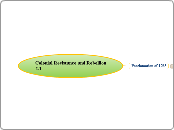by Andrea Nguyen 18 years ago
936
Colonial Resistance and Rebellion2.1

by Andrea Nguyen 18 years ago
936

More like this
halted expanision by colonists west of the Appalachian Mountains
-proposed by prime minister George Grenville
-Grenville concluded that colonies were smuggling goods into the country without paying import taxes.
Parliament law, 1765
1st direct taxation of goods and services
strengthened enforcement law by trialing smuggling cases in vice-admirally court
placed duties (import taxes) on certain imports never taxed before
lowered taxes on foreign-made molasses
hoped colonists would pay low taxes instead of smugling consequences.
Afr. Am sailor that lead a group of laborers to customshouse to attack the British troops 1770.
1st colonist to die in war for freedom